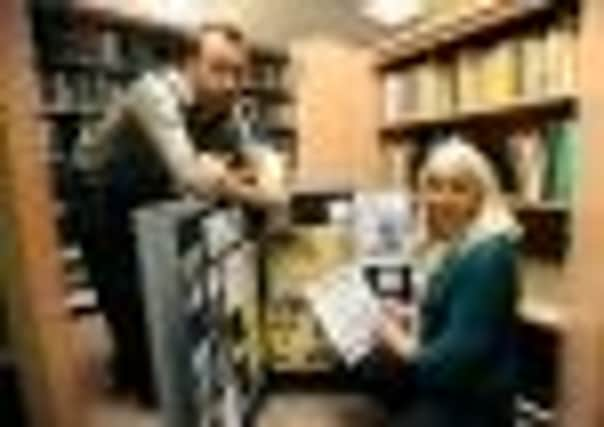Easing county poetout of obscurity


At least, that’s the reasoning behind a major new anthology of Walker’s poetry six years after his death - an attempt to win him the recognition he deserves.
The anthology, Minting The Sun, has been published by the University of Chichester, home of the Ted Walker archive.
Advertisement
Hide AdAdvertisement
Hide AdHead of English and creative writing Diana Barsham is hoping it will help retrieve Walker from the obscurity into which he is slipping. Ultimately Diana would love to see him reinstated him alongside his contemporaries - and, in her view, his equals - Ted Hughes, Sylvia Plath and Philip Larkin.
Educated at Steyning Grammar School and Cambridge University, Walker became a major figure in the literary world of the 1960s and 1970s.
With the publication of his two autobiographies and his travel guide to Spain, Walker was recognised as one of the outstanding writers of his generation.
Born in Lancing, he lived for most of his professional life in the village of Eastergate before retiring to Spain in the 1990s. He died in 2004.
Advertisement
Hide AdAdvertisement
Hide AdMinting The Sun - the first stage in a literary revival which might soon see the publication of an anthology of his short stories - brings together poems dealing with family life, the natural world and the land and seascapes of Walker’s native West Sussex.
“We have used the poems that were inspired by this area. He was a very local writer in that Thomas Hardy tradition, but West Sussex hasn’t really given him the credit.”
Walker taught at Chichester High School and also at the UK campus of the New England College at Tortington, near Arundel. He is buried in the parish church of St George at Eastergate with his first wife, Lorna.
“He wrote a variety of different things, but gave up poetry for a while after the death of his first wife. He said that the muse deserted him. She was his standard of truth. He tells the story in his two autobiographies. Both were very closely linked to Lorna.
Advertisement
Hide AdAdvertisement
Hide Ad“The first autobiography was about his upbringing in Lancing and working-class background. He had a very unprivileged background, but he went to Steyning Grammar School and it was there that he met Lorna.”
Walker went on to study modern languages at Cambridge, part of what Diana calls that first 1960s generation of working-class students at Oxbridge - a place he never truly felt at home but where he secured his reputation as one of that great 60s class of Cambridge poets.
“He was a very masculine poet and a very strong poet. He is primarily a linguist, and there is great energy and movement in his language. He was also a discus thrower and I have used that on the cover of the book. You have got that second of somehow using all your energy to get the maximum power when throwing a discus, and that’s how his poetry was as well.
“There is a maximum acceleration and movement towards that tremendous grace and control and power. All his best poems - and that’s most of them - have got that great sense of something in movement.
Advertisement
Hide AdAdvertisement
Hide Ad“The other thing is that he is, unusually, a very communicative poet. He is always talking to someone. His poems are addressed to someone, maybe friends or family. And he puts across difficult emotions. Men more traditionally find it difficult to write across difficult emotional terrain, but he does it brilliantly in his poetry. He has that gift of speaking to you.”
n Minting The Sun is available from Amazon and also from the University of Chichester, priced £7.